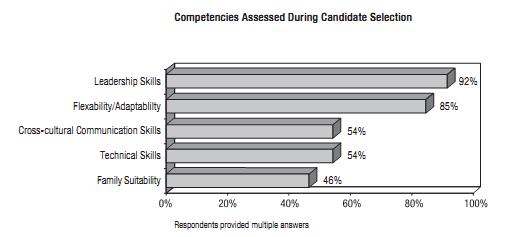The annual Brookfield global relocations survey consistently reports that finding suitable candidates is one of the main relocation challenges for companies. Specifically, the recent 2011 survey findings highlight candidate selection as the third most important challenge, topped only by assignment costs (1st) and career management (2nd).
However, this year’s report also includes a new section of international assignee selection and assessment, which gives greater insight into the discussed challenges.
The data provided by HR professionals and/or relocation program managers show that while candidate willingness to accept an assignment is an important factor for entering the candidate pool, it is by far not the only one. What is perceived even more important is being a high-potential employee and having specific or rare skills. Previous international experience and cultural abilities/skills are also considered essential for becoming a candidate for an international assignment.
Further, because expatriation is a challenging endeavour both personally and professionally, it requires thorough skill-based selection procedures to identify the right person from the overall candidate pool. Survey respondents cited both soft and hard skills being considered for selection with leadership skills being the most important (see Figure).
*Source: 2011 Brookfield Global Relocation Trends survey
As good as this may sound, the selection process remains largely theoretical though because the survey results also highlight a lack of practical implementation. The findings show that only 22% of the responding companies had formal career management processes in place and only 19% of companies had formal candidate assessment tools and a formal candidate pool. So after all it seems that the difficulty of finding suitable expatriates may be due to the absence of formal assignee selection policies.


